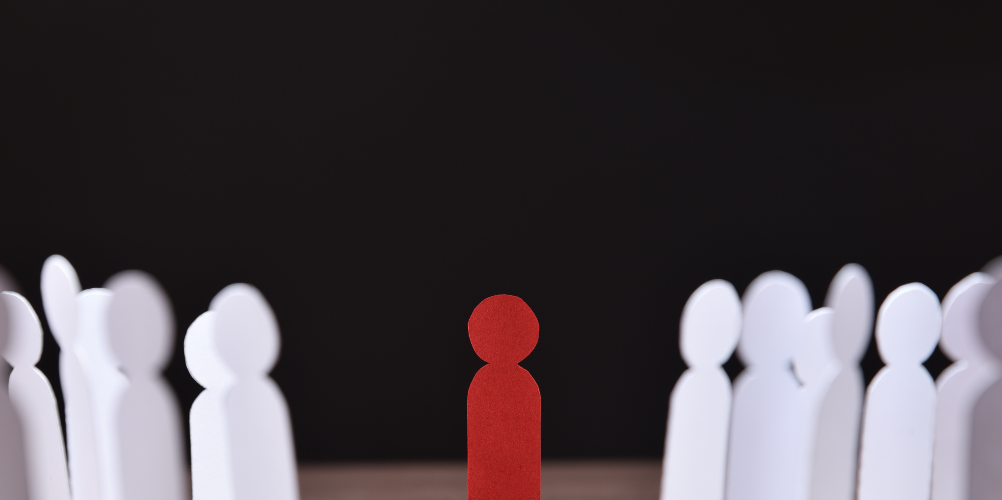In my role as Lived Experience Co-ordinator I have had many discussions, both formal and informal, with people who have lived/living experience of homelessness. While each experience was subjective and unique, there were ribbons of common characteristics and shared experiences that ran through all of these conversations.
The most complex issue was that of stigma and the language we use when talking about fellow human being.
So – what is stigma?
An internet search will pull up quite a few definitions and varying types of stigma.
The Britannica definition of stigma is:
‘a set of negative and often unfair beliefs that a society or group of people have about something’
It’s a good definition but it doesn’t go far enough.
Stigma is shame and fear in action – self stigma is shame and fear internalised.
Stigma discredits the individual – they are ‘less than’ others in society.
Those in our society who experience homelessness are highly stigmatised. Those who have to sleep on the streets, even more so. But why? Why is it seen as shameful to lose your place of residence? Why do we treat people in this incredibly vulnerable position as criminals? Making a leap from not having a permanent safe place to live – to criminal? It just doesn’t add up.
In Northern Ireland, two pieces of legislation make it an offence to sleep rough or beg in this society: section 4 of the 1824 Vagrancy Act and section 3 of the Vagrancy (Ireland) Act 1847. Tragically, people have been and are criminalised for having no place to live. These laws are inherently stigmatising. They create an ‘us and them’ attitude and place the responsibility firmly on the person experiencing homelessness rather than society at large.
Unfortunately, these laws cannot be repealed here without a functioning Assembly. Following years of campaigning, positive steps have been taken towards repeal of the 1824 Vagrancy Act in England and Wales. We cannot follow suit while the political situation remains as it is.
Thankfully, in many ways our society has progressed in terms of our understanding of homelessness. However, it remains the case that bias- both conscious and unconscious- very much still remains. I remember as a small child being shielded from anyone experiencing homelessness. My eyes covered by the adult I was with as we were walking past, my face physically turned away.
The media and Hollywood have their role to play too. Look at how those who experience homelessness are portrayed in the local news, the papers, on the big screen.
Take note of the language used in news articles, on the local radio and indeed at the language you yourself use, when describing a group or individuals experiencing homelessness.
Ask yourself if this makes sense – we stigmatise and criminalise those who have nowhere to live due to a law that was passed nearly 200 years ago.
Is this really how we want to speak of the most vulnerable in our society?
Nikki McConville is Lived Experience Co-ordinator for Homeless Connect


